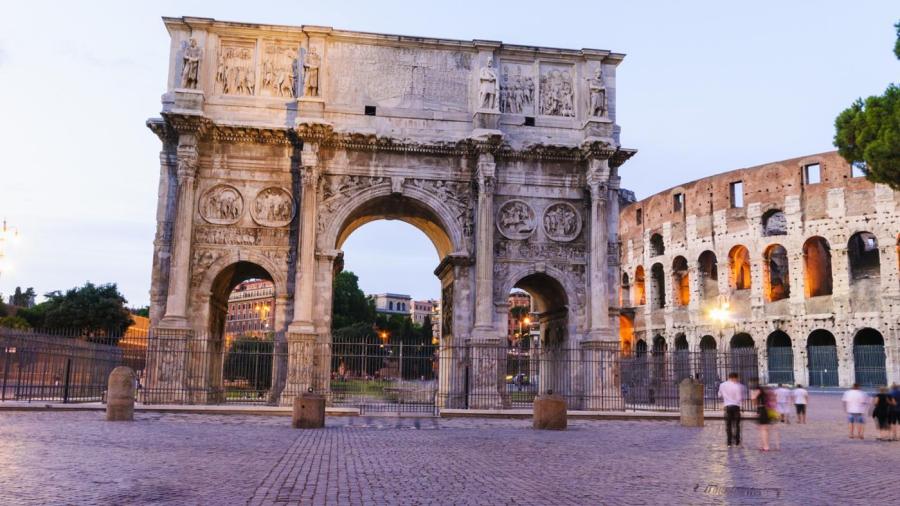Why Did the Roman Republic Collapse?

There was no single cause or event which led to the downfall of the Roman Republic. Social and political instability, rapid expansion, and corruption among the rich and powerful all played a role.
The Consequences of War The Roman Republic engaged in series of wars that expanded the republic’s territory and brought it large sums of money. These increases in the treasury led to increased competition for public office and increased cases of bribery throughout the public as citizens tried to gain access to the money. Romans also brought back people they captured during battle and forced them into slavery. This resulted in a shift in the rural, agricultural regions. Instead of small, family-owned farms, wealthy citizens ran large estates in Italy and Sicily powered by slave labor.
Increased Power of Rome The city of Rome grew extensively during this time period. Roman and Italian citizens in search of work and improved living conditions flocked to the city, increasing the need for improved infrastructure. To build the roads and buildings it needed, the Romans relied on slave labor. When the Republic stopped engaging in as many wars in 146 B.C., revenue also slowed, leaving little to no money available to support the citizens. The increased power of Rome also improved the status of Roman senators, who went to great lengths to attain and maintain their power. This led to even more corruption in the government and among the people.
Financial Burden of the Republic To compensate for the loss of war profits, Rome turned to a tax system that proved to be so profitable that it stopped collecting taxes from Roman citizens. This led to discontent in the provinces. Not only were they carrying the tax burden of the entire Republic, but the taxing system was corrupt. Containing the skirmishes in the provinces also proved difficult since Rome struggled to find personnel for its army. Soldiers felt they worked too hard for the small wages they received. Rome tried to establish a draft to fill the military positions, but it used land records to draft men. To avoid the draft, the men abandoned their land, which left them without a means to make money. This further drained the Republic’s treasury.
The Beginning of the End Many scholars point to a law proposed by Tiberius Sempronius Gracchus in 156 B.C. as the beginning of the Republic’s decline. Gracchus developed a plan that gave public land to poor citizens. However, he took the idea directly to an assembly of the people instead of going through the Senate. Although the land proposal passed, Gracchus made several enemies in the process, and they eventually assassinated him. About 100 years later, Pompeius Magnus, Licinius Crassus, and Julius Caesar formed the first triumvirate, the final step before the foundation of the empire. By the end of the second civil war, Pompey and Crassus were dead, leaving Caesar as the sole ruler of Rome. A few weeks after declaring himself dictator, a group of men conspired to assassinate Caesar and end his control. Less than 20 years later, the Roman Republic officially ended and transitioned into the Roman Empire.





